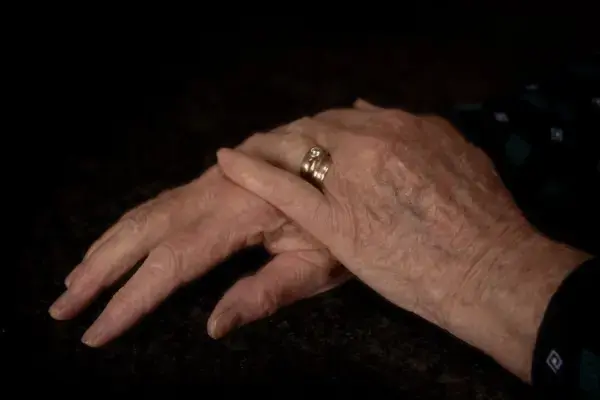
For Teachers & Professionals
The Open Communication model of Brenner for patients with Parkinson’s disease
Even when acknowledging the importance of sexual health, inquiry about sexual functioning may be overlooked by neurologists due to time constraints, confusion about sexual conversation, and lack of proper training. The ‘Open Sexual Communication’ (OSEC) model can be used to overcome these barriers in clinical practice.
In this model there are three phases of practical strategies: 1. initiate the sexual discussion and identify concerns; 2. evaluate with practical tools; 3. intervention and solutions.
1. Initiate the sexual discussion and identify concerns
Addressing sexual issues in the office setting requires a comforting and secure atmosphere in which patients can easily discuss their intimate problems. There are 3 ways to raise discussion on sexual problems during the office visit: 1. the patient spontaneously initiates the conversation about their concerns; 2. the physician passively invites the patient (indirect approach). This step is easily implemented by distributing leaflets, posters, questionnaires and other relevant information in the clinic, and evokes a high help-seeking behaviour; 3. the physician actively inquires the patient (direct approach). A physician may ask one of the following inquiries: “How did your illness affect your intimate life?” or “Are you experiencing any problems with your sexual function?”. He may make patients feel that sexual problems are frequent, by saying: “Maybe you are unaware, but people with Parkinson’s disease (PD) often have problems with sex. If you notice any changes in your sexual life, please share with me. Today we can treat many sexual problems.”
2. Practical strategies for evaluation of sexual problems
Clinicians who proceed with assessment can achieve higher success rates by including the patients’ partners in the discussions and treatment planning. By taking sexual history patients get an opportunity to discuss their sexual problems in a non-threatening manner.
In order to take a full sexual history, ask your patient and/or the patient's partner about:
a. The onset of the sexual problem;
b. The progression of the sexual problem;
c. The nature of the problem (generalized/situational);
d. Evaluate the specific situations when the sexual problem exists;
e. Description of sexual function and sexual satisfaction before the onset of PD;
f. Psychological or interpersonal or relationship factors;
g. The most bothersome sexual problem such as: desire, arousal, erectile, early or delayed ejaculation, orgasm, pain, frequency of sexual activity, cooperation of partner;
h. Sexual problems of the partner.
3. Practical strategies for managing sexual problems in Parkinson's disease
Both organic and psychosocial factors play a role in the aetiology of sexual function and dysfunction, and consequently in the management and treatment of SD. The overall goal of these interventions is to increase intimacy, pleasure and satisfaction, not to achieve a perfect genital response. For many couples, it is surprising to discover how enjoyable sexual activity can be, in spite of the limitation imposed by PD. Some practical strategies may be reassuring of the right to have sexual intimacy even with the illness; giving sexual education about the natural decrease of sexual response with age; teaching non-penetrative intercourses and other ways to achieve pleasure; using drugs like PDE5 or managing those already in use that may cause sexual dysfunctions like SSRI; use adjuvants like lubricants; encourage the couple to explore sensations; address motor impairments discovering new positions.
Physicians have a major role in addressing the sexual problems of their PD patients. Each physician can choose the extent of intervention which corresponds to his capabilities and time constraints.
REFERENCES
Bronner, G. (2009). Practical strategies for the management of sexual problems in Parkinson's disease. Parkinsonism & related disorders, 15, S96-S100.
Share the knowledge!
More For Teachers & Professionals Q&A

Promoting healthy relationships in Young people

Epilepsy and Sexuality

Parkinson’s disease and Sexuality

Autistic Spectrum Disorder - Part 2: Practical Tips for Communicaiton

Fibromyalgia and Sexuality

The PANTS lesson plan
This is a website that WE are building together. If you have a question there is no answer to on this site, send it here!
